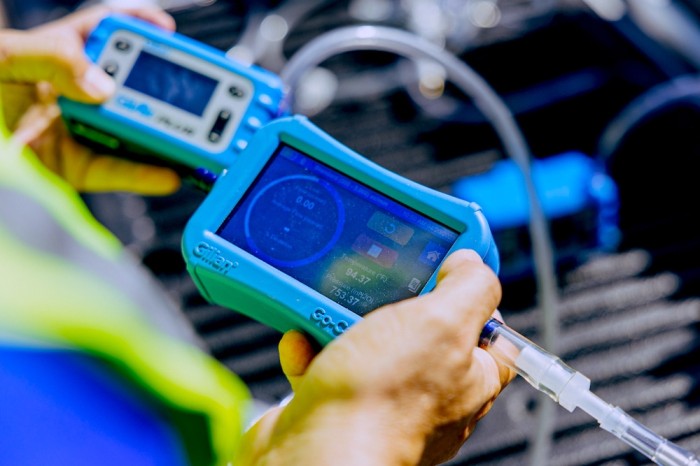Dust and Fume Sampling in Qatar – Protecting Worker Health and Ensuring Air Quality Compliance
Dust and Fume Sampling in Qatar is one of the most critical aspects of industrial hygiene and occupational health management. In workplaces such as oil and gas facilities, construction sites, metal fabrication workshops, and manufacturing plants, employees are often exposed to airborne particles, welding fumes, and chemical vapors that can harm respiratory health.
Through accurate sampling and analysis, organizations can determine exposure levels, control risks, and comply with Qatar’s strict occupational safety regulations. By investing in dust and fume monitoring, businesses not only protect their workforce but also demonstrate a strong commitment to sustainable and safe operations.
Understanding Dust and Fume Sampling
Dust and fume sampling involves collecting air samples from workplaces to evaluate the presence and concentration of airborne contaminants. The process is usually performed using specialized equipment such as personal air samplers, area samplers, and gravimetric filters.
The key objectives of this process include:
Measuring employee exposure to dust and fumes
Identifying hazard sources and high-risk activities
Evaluating the effectiveness of ventilation systems
Ensuring compliance with Qatar Labor Law and international HSE standards
The collected samples are then analyzed in accredited laboratories to determine concentrations of specific contaminants. Results are compared to international exposure limits such as those defined by OSHA (Occupational Safety and Health Administration), ACGIH (American Conference of Governmental Industrial Hygienists), and NIOSH (National Institute for Occupational Safety and Health).
Types of Dust and Fume Sampling
Workplaces in Qatar vary in processes and environmental conditions, which is why sampling methods are customized to fit each operation.
1. Dust Sampling
Dust sampling focuses on detecting particles that can be inhaled or deposited in the lungs. Common types include:
Total Dust Sampling – Measures all airborne particles regardless of size.
Respirable Dust Sampling – Targets smaller particles (e.g., silica) that penetrate deep into the lungs.
Inhalable Dust Sampling – Measures larger particles that may be trapped in the upper airways.
2. Fume Sampling
Fume sampling identifies metallic and chemical vapors generated during industrial operations such as:
Welding, cutting, or soldering
Metal casting or smelting
Chemical processing and paint spraying
Plastic manufacturing and thermal decomposition
Monitoring fumes ensures employees are not overexposed to hazardous metals like lead, cadmium, chromium, or manganese.
Why Dust and Fume Sampling Is Important in Qatar
As Qatar continues to develop major infrastructure and industrial projects, ensuring worker health has become a national priority. Poor indoor air quality and prolonged exposure to contaminants can cause serious health effects such as:
Respiratory illnesses (asthma, bronchitis, pneumoconiosis)
Allergic reactions and eye irritation
Chronic lung diseases like silicosis
Long-term damage to the liver, kidneys, or nervous system due to metal fumes
Regular dust and fume sampling in Qatar helps employers:
Detect and mitigate potential exposure risks early
Meet regulatory compliance with Qatar’s Ministry of Labor and HSE standards
Maintain a safe and healthy workplace environment
Prevent occupational diseases and compensation claims
Improve worker morale and productivity
Our Expertise in Dust and Fume Sampling
At JAB International Consultancy, we specialize in industrial hygiene and air quality monitoring services across Qatar. Our certified professionals provide accurate and comprehensive dust and fume sampling for a wide range of industries.
Our services include:
Personal and area air monitoring for dust, fumes, and gases
Workplace exposure assessment in line with ACGIH and NIOSH methods
Detailed reports with recommendations for corrective actions
Control measure guidance such as engineering improvements or PPE upgrades
Periodic re-sampling to verify the effectiveness of implemented controls
We follow globally recognized procedures to ensure precise, reliable results that help organizations maintain full compliance with local and international safety standards.
For reference to international best practices, visit the NIOSH Manual of Analytical Methods.
Industries That Require Dust and Fume Sampling in Qatar
Oil and Gas Facilities – To monitor gases, fumes, and particulate exposure in maintenance and production areas.
Construction and Cement Plants – For silica dust, cement particles, and concrete grinding residues.
Metal Fabrication Workshops – For welding fumes and metallic oxides.
Manufacturing Plants – For chemical emissions, powders, and solvents.
Woodworking and Furniture Units – For sawdust, lacquer, and adhesive fumes.
Each industry has unique exposure risks, and our consultants tailor monitoring strategies to suit each environment.
Conclusion
Conducting regular dust and fume sampling in Qatar is essential for maintaining safe, compliant, and sustainable workplaces. By accurately measuring exposure levels, organizations can make informed decisions to control risks, safeguard employee health, and meet regulatory standards.
With professional support from JAB International Consultancy, companies can confidently protect their workforce and ensure cleaner, healthier air across all operations.

